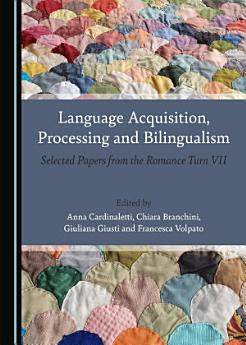Language Acquisition, Processing and Bilingualism: Selected Papers from the Romance Turn VII
អំពីសៀវភៅអេឡិចត្រូនិកនេះ
This book also includes contributions on atypical language acquisition in cases of deafness and on language intervention based on formal linguistics. It will appeal not only to scholars and students interested in the nature and processes behind first, second and bilingual language acquisition, and impaired language acquisition, but also to language educators and clinicians.
អំពីអ្នកនិពន្ធ
Chiara Branchini is a sign language specialist. Her publications include one book, one edited volume, and 32 articles on the syntax of sign languages, code-blending in bimodal bilinguals, and (a)typical language acquisition. She is one of the authors of A Grammar of Italian Sign Language (2020).
Giuliana Giusti is a specialist of formal syntax and its applications to language education, language awareness, and gender identity. She has published four books, including Nominal Syntax at the Interfaces (2015), seven edited volumes, and 85 articles.
Francesca Volpato is a specialist of typical and atypical language acquisition in cases of deafness and learning difficulties, on which she has published one book and 32 articles. She coordinates the Laboratory of Linguistics for Deafness and Language Disorders, at Ca’ Foscari University of Venice, Italy.





